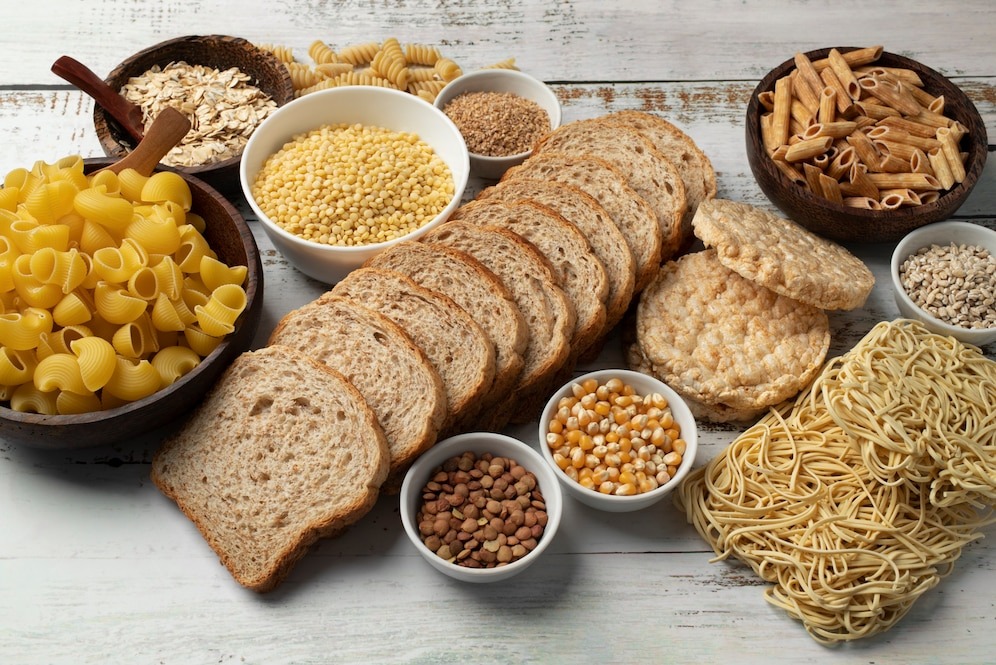Inflammation, a natural defense mechanism of the body, plays a crucial role in safeguarding us against infections and injuries.
However, chronic inflammation, which persists over time, can be detrimental to our health, contributing to various chronic diseases like diabetes, heart disease, and obesity.
Surprisingly, the foods we consume can significantly impact the levels of inflammation within our bodies. In this article, we will explore five common foods that have been linked to promoting inflammation.

1. Sugar and High Fructose Corn Syrup
Understanding Added Sugars
- Table Sugar (Sucrose) and High Fructose Corn Syrup (HFCS): These are the two primary types of added sugars prevalent in the Western diet.
- Composition: Sugar is composed of 50% glucose and 50% fructose, while HFCS contains approximately 45% glucose and 55% fructose.
The Inflammatory Link
- Studies Show: High consumption of added sugars can lead to increased inflammation, which, in turn, elevates the risk of chronic diseases.
- Breast Cancer and Sugar: Research on mice fed high-sucrose diets revealed the development of breast cancer that spread to their lungs, partly due to the inflammatory response to sugar.
- Omega-3 Impairment: A study demonstrated that the anti-inflammatory effects of omega-3 fatty acids were impaired in mice fed a high-sugar diet.
- Uric Acid and Inflammation: In a clinical trial involving soda consumption, only the regular soda group exhibited increased levels of uric acid, a driver of inflammation and insulin resistance.
Fructose Effects
- Fructose Overconsumption: Excessive fructose intake from added sugars is associated with obesity, insulin resistance, diabetes, fatty liver disease, cancer, and chronic kidney disease.
- Endothelial Inflammation: Researchers have noted that fructose can cause inflammation within endothelial cells lining blood vessels, increasing the risk of heart disease.
- High Fructose Diet: Studies indicate that high fructose intake increases inflammatory markers in both mice and humans.
Foods to Watch Out For
- High in Added Sugar: Be cautious of foods such as candy, chocolate, soft drinks, cakes, cookies, doughnuts, sweet pastries, and certain cereals. Also Read- Say Goodbye to Pain and Inflammation with These 7 Heavenly Foods!

2. Fried Foods
The Culprit in the Fryer
- High Fat and Calories: Fried foods, including French fries, mozzarella sticks, doughnuts, and egg rolls, are not only high in fat and calories but also possess inflammation-triggering properties.
Cooking Methods and Inflammation
- Formation of AGEs: Certain high-heat cooking methods, such as frying, can generate harmful compounds called Advanced Glycation End Products (AGEs), contributing to inflammation and chronic diseases.
- Trans Fats: Frying can increase the trans fat content in cooking oils, which is another factor promoting inflammation.
- Gut Microbiome Influence: Research suggests that fried foods can alter the composition of the gut microbiome, potentially intensifying inflammation.
Heart Disease Risk
- Studies on Heart Disease: Several studies have found a connection between fried food consumption and an elevated risk of developing and dying from heart disease.

3. Refined Carbohydrates
The Complex Carb Story
- Carbohydrates Reputation: Carbohydrates have received mixed reviews, with many nutritious carb sources beneficial for a well-rounded diet.
- Refined Carbs: However, the excessive intake of refined carbohydrates can stimulate inflammation.
The Impact of Refined Carbs
- Lack of Fiber: Refined carbs have most of their fiber removed. Fiber is essential for fullness, blood sugar control, and nurturing beneficial gut bacteria.
- Inflammatory Gut Bacteria: Modern diets rich in refined carbs may encourage the growth of inflammatory gut bacteria, increasing the risk of obesity and inflammatory bowel disease.
- Glycemic Index (GI): Refined carbs have a higher glycemic index (GI), causing quicker spikes in blood sugar levels.
- Positive Findings: Studies have shown that a low GI diet can reduce markers of inflammation, particularly in people with diabetes.
Identifying Refined Carbs
- Common Sources: Refined carbohydrates can be found in candy, bread, pasta, pastries, some cereals, cookies, cakes, sugary soft drinks, and processed foods containing added sugar or flour.

4. Excessive Alcohol
Moderation Matters
- Moderate Alcohol and Health: Moderate alcohol consumption may offer some health benefits.
- Heavy Drinking Effects: However, excessive alcohol consumption can lead to severe problems.
Alcohol and Inflammation
- C-reactive Protein (CRP): In a study, CRP levels, a marker of inflammation, increased in people who consumed alcohol. Higher alcohol intake led to the highest CRP levels.
- Leaky Gut Syndrome: Heavy drinking can result in the movement of bacterial toxins from the colon into the body, causing “leaky gut” and widespread inflammation.
Recommended Limits
- Safe Intake: To avoid alcohol-related health issues, it is recommended to limit alcohol consumption to two standard drinks per day for males and one for females. Read this- Can I Eat Banana While Having a Fever?

5. Meats Cooked at High Temperatures
Cooking for Risk
- High Heat and Meats: Consuming meats cooked at high temperatures, including processed meats like bacon, sausage, ham, and smoked meat, is associated with an increased risk of heart disease, diabetes, and certain cancers.
The AGE Connection
- Inflammatory Compounds (AGEs): High-temperature cooking leads to the formation of Advanced Glycation End Products (AGEs), which promote inflammation and contribute to chronic conditions such as heart disease, cancer, metabolic syndrome, and type 2 diabetes.
- Marinating and Cooking Methods: Marinating meats in acidic solutions before cooking and opting for shorter cooking times and moist heat methods can help minimize AGE formation.
In conclusion
Being mindful of your dietary choices can significantly impact your body’s inflammatory response.
Reducing the consumption of sugar, fried foods, refined carbs, excessive alcohol, and meats cooked at high temperatures can be a crucial step toward mitigating chronic inflammation and lowering the risk of associated chronic diseases.
Making informed food choices is not just about satisfying your taste buds but also about safeguarding your long-term health.




